An inverter is an electrical device that converts direct current (DC) into alternating current (AC). A portable generator is a self-contained unit that provides AC power from an internal combustion engine.
The main difference between an inverter and a portable generator is that an inverter changes DC power into AC power, while a portable generator creates AC power from an internal combustion engine.
Inverters are more efficient than portable generators because they don’t rely on an engine to create power. This makes them quieter and less expensive to operate.
Inverters are also smaller and lighter than portable generators, making them more convenient to use and store.
Portable generators are more powerful than inverters, making them better suited for large appliances and power tools. They’re also more expensive to purchase and operate.
If you need a reliable source of AC power, an inverter is the better choice. If you need a more powerful option, a portable generator is the way to go.
Difference of Inverter vs Portable Generator
A portable generator is a great investment for anyone who needs a backup power source for their home or business. Portable generators come in a variety of sizes, from small units that can power a few appliances to larger units that can power an entire home. Inverters are a type of portable generator that is becoming increasingly popular, due to their many benefits. Here are a few things to consider when deciding between an inverter and a portable generator:

Inverters are more expensive than portable generators, but they offer a number of advantages. Inverters are much quieter than portable generators, and they produce cleaner power that is ideal for sensitive electronics. Inverters are also more fuel-efficient, meaning they will save you money in the long run.
Portable generators are a great choice for anyone who needs a backup power source but doesn’t want to spend a lot of money. Portable generators are less expensive than inverters, and they can power a wide range of appliances. However, portable generators are louder than inverters and they produce dirty power that can damage sensitive electronics.
If you need a backup power source but don’t want to spend a lot of money, a portable generator is a good choice. However, if you need a quiet, fuel-efficient, and environmentally-friendly power source, an inverter is the better choice.
Which is Better Inverter or Portable Generator?
Portable generators are a great option for those who need power on the go. They are small, lightweight and easy to transport, making them ideal for camping, tailgating and other outdoor activities. Portable generators can also be used as a backup power source in the event of a power outage.
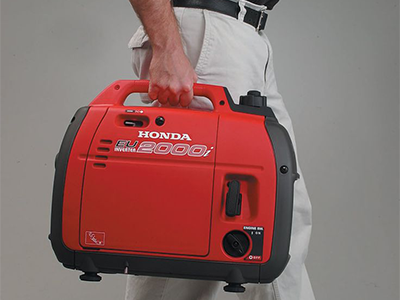
Inverters are a type of electrical converter that convert direct current (DC) into alternating current (AC). Inverters are used to power electronic devices that require AC power, such as computers, TVs and power tools. They are also used in renewable energy systems, such as solar and wind power systems, to convert DC power from the sun or wind into AC power that can be used to power homes and businesses.
So, which is better – an inverter or a portable generator?
There is no simple answer to this question as it depends on your specific needs and preferences. If you need a portable power source that can be used for camping, tailgating or other outdoor activities, then a portable generator is a good option. If you need a backup power source for your home or business in the event of a power outage, then an inverter is a better option. Ultimately, it is up to you to decide which type of power source is best for your needs. Easy to install car seat covers
Inverter
An inverter generator is a portable generator that produces AC power by converting DC power from a battery or other DC source. The inverter generator is a type of portable generator that is becoming increasingly popular due to its many advantages over traditional generators.
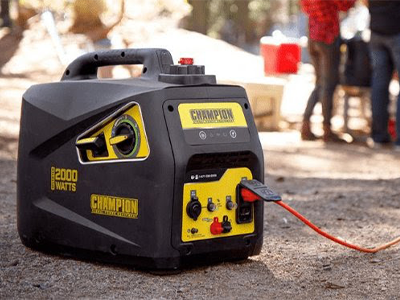
The main advantage of an inverter generator is that it produces clean, stable power that is ideal for sensitive electronic equipment. Inverter generators are also much quieter than traditional generators, and often much lighter and more compact as well.
If you are looking for a portable generator to take with you camping, tailgating, or for use in an emergency situation, an inverter generator is an excellent choice.
What Are The Advantages Of An Inverter Generator?
An inverter generator is a type of generator that produces alternating current (AC) power from direct current (DC) power. The main advantages of an inverter generator are that it is more efficient than a conventional generator and it is much quieter.
Inverter generators are more efficient than conventional generators because they convert DC power to AC power using an inverter. This means that less power is lost in the conversion process. Inverter generators are also quieter than conventional generators because the inverter is a silent type of technology.
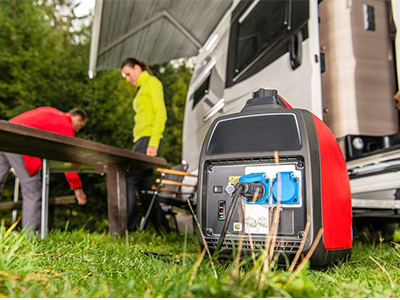
If you are looking for a generator that is more efficient and quieter than a conventional generator, then an inverter generator is the ideal choice.
There are many advantages to using an inverter generator over a traditional generator. Here are 20 of the most notable advantages:
- Inverter generators are much quieter than traditional generators, making them ideal for use in camping and other outdoor activities.
- Inverter generators are much more fuel efficient than traditional generators, meaning you’ll save money on fuel costs over time.
- Inverter generators can be used with sensitive electronic equipment, as they produce clean power that won’t damage delicate electronics.
- Inverter generators are much lighter and more portable than traditional generators, making them easy to take with you on the go.
- Inverter generators are easy to operate, as they typically have user-friendly controls.
- Inverter generators can be used with a variety of different appliances, making them versatile and convenient.
- Inverter generators produce minimal emissions, making them environmentally friendly.
- Inverter generators are low maintenance, as they don’t require tune-ups or other regular maintenance like traditional generators.
- Inverter generators have a long lifespan, so you can expect to get many years of use out of them.
- Inverter generators are backed by warranties, so you can be confident in your purchase.
- Inverter generators are available in a variety of sizes to suit your needs.
- Inverter generators can be used in a variety of settings, including RVs, construction sites, and more.
- Inverter generators are a great investment, as they hold their value over time.
- Inverter generators are easy to find, as they are widely available from a variety of retailers.
- Inverter generators are a great way to ensure you have power in an emergency situation.
- Inverter generators are a great way to power your home if you experience a power outage.
- Inverter generators are a great way to keep your family safe in an emergency situation.
- Inverter generators can help you be prepared for anything.
- Inverter generators are a great way to save money on your energy bill.
- Inverter generators are a great way to reduce your carbon footprint.
what are the disadvantages of an inverter generator?
There are several disadvantages associated with inverter generators. One downside is that they tend to be more expensive than traditional generators. Additionally, inverter generators can be more difficult to find parts for and to troubleshoot if they experience problems. Another disadvantage is that inverter generators can be slightly louder than traditional generators, making them less ideal for camping or other quiet outdoor activities.
- Inverter generators are significantly more expensive than traditional generators.
- Inverter generators are significantly quieter than traditional generators, making them less obtrusive.
- Inverter generators are more fuel-efficient than traditional generators, meaning you’ll save money on fuel costs.
- Inverter generators can be used with sensitive electronic equipment, as they produce clean power. Traditional generators can damage electronic equipment.
- Inverter generators are much lighter and more portable than traditional generators, making them easier to transport.
- Inverter generators have a longer lifespan than traditional generators.
- Inverter generators are easier to maintain than traditional generators.
- Inverter generators produce less emissions than traditional generators, making them more environmentally friendly.
- Inverter generators can be used indoors, as they produce no fumes. Traditional generators cannot be used indoors.
- Inverter generators can be plugged into your home’s electrical system, allowing you to use your home’s wiring to power your generator. Traditional generators cannot be plugged into your home’s electrical system.
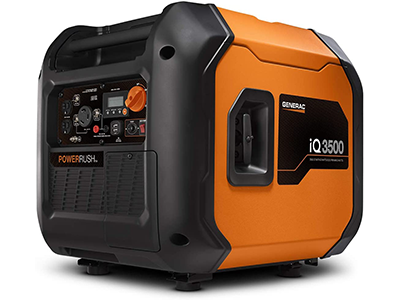
how does an inverter generator work?
An inverter generator converts DC power from the generator’s engine to AC power. The inverter is a type of electrical converter that changes the DC power from the generator into AC power. The AC power from the inverter generator is the same type of power that is supplied by your electrical utility company.
The inverter generator is a more efficient type of generator than a conventional generator. The inverter generator is also a quieter type of generator. The inverter generator is a more expensive type of generator than a conventional generator.

The inverter generator is a more efficient type of generator because the inverter is more efficient than a conventional generator. The inverter is more efficient because it uses Pulse Width Modulation (PWM) to convert the DC power from the generator into AC power. The PWM is more efficient than the conventional generator because it uses transistors to control the amount of current that flows through the generator’s engine. How to Install Dual Exhaust on a Chevy Truck?
how to use an inverter generator ?
If you need to generate power but don’t have access to the main grid, an inverter generator is a great option. Inverter generators are portable and can be used to power a wide variety of devices, from small electronic devices to larger appliances. Here’s a quick guide on how to use an inverter generator.
First, you’ll need to choose the right inverter generator for your needs. There are a few things to consider, such as the wattage output and the fuel type. Make sure to read the reviews before making your purchase.
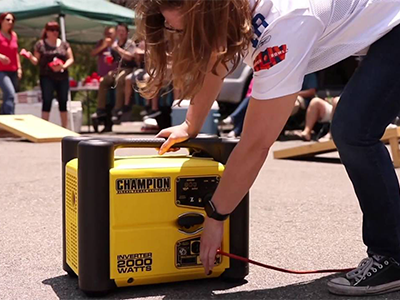
Once you have your inverter generator, you’ll need to set it up. Start by reading the manual that came with your generator. This will help you understand how to properly set up and operate your generator.
Next, you’ll need to connect your devices to the generator. Most inverter generators have multiple outlets, so you can plug in multiple devices at the same time. Make sure to follow the manufacturer’s instructions on how to properly connect your devices.
Finally, you’ll need to start the generator and let it run for a few minutes before using it. This will help ensure that the generator is working properly.
Now that you know how to use an inverter generator, you’ll be able to keep your devices powered even when the power is out.
If you need to power something that runs off of batteries, or if you have an appliance that is not compatible with the type of power supplied by your generator, then you will need to use an inverter generator. Inverter generators are designed to generate AC power, and then convert it to DC power. This is the type of power that is required by most battery-powered devices.
In order to use an inverter generator, you will need to have a power source that can supply AC power. This can be either a generator or a mains electricity supply. Once you have a power source, you will need to connect the inverter generator to the power source.
Most inverter generators have a built-in battery. This battery is used to store DC power that is generated by the inverter generator. When you need to use the inverter generator, you will need to connect the battery to the inverter generator.
Once the battery is connected, you will need to turn on the inverter generator. The inverter generator will then start to generate AC power. This AC power will then be converted to DC power by the inverter generator.
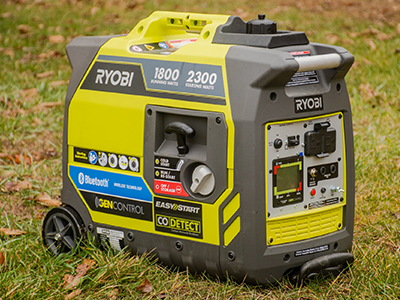
The DC power that is generated by the inverter generator can then be used to power any battery-powered device. You can also use the DC power to charge any batteries that you have.
If you have an appliance that is not compatible with the type of power supplied by your generator, you can still use the inverter generator. In order to do this, you will need to connect the appliance to the inverter generator.
Once the appliance is connected, you will need to turn on the inverter generator. The inverter generator will then start to generate AC power. This AC power will then be converted to DC power by the inverter generator.
The DC power that is generated by the inverter generator can then be used to power the appliance. You can also use the DC power to charge any batteries that you have.
Inverter Generator For Home Backup
A backup generator is a great addition to any home. They provide power during a power outage, and can keep your family safe and comfortable. Inverter generators are a great option for a backup generator, as they are more efficient and quieter than traditional generators.
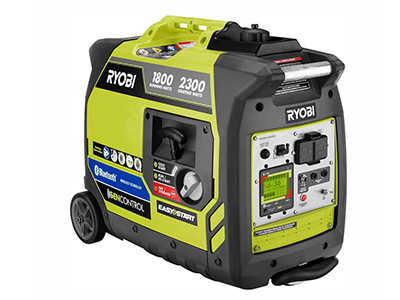
There are a few things to consider when choosing an inverter generator for your home backup. First, you need to decide how much power you need. Inverter generators come in a variety of sizes, so you can find one that will fit your needs. Second, you need to decide how you will use the generator. Will you use it for emergency power, or will you use it for everyday tasks like powering a fridge or a microwave?
Third, you need to decide what features you want in your generator. Do you want one with a built in inverter, or do you want a separate inverter? Do you want a generator that is quiet, or do you want one that is powerful?
Fourth, you need to decide how you will fuel the generator. Inverter generators can run on gas, propane, or diesel. Each has its own benefits and drawbacks, so you will need to decide which fuel is best for you.
Finally, you need to decide where you will store the generator. Inverter generators are small and can be stored in a garage or shed.
An inverter generator is a great addition to any home. They provide power during a power outage, and can keep your family safe and comfortable. Inverter generators are a great option for a backup generator, as they are more efficient and quieter than traditional generators.
Inverter vs Generator For RV
There are many different types of RV generators on the market. Some people swear by generators, while others prefer inverters. So, which is the best option for your RV? Inverters vs generators for RV use can be a tough decision. Here is a breakdown of the pros and cons of each option to help you make the best decision for your RV.
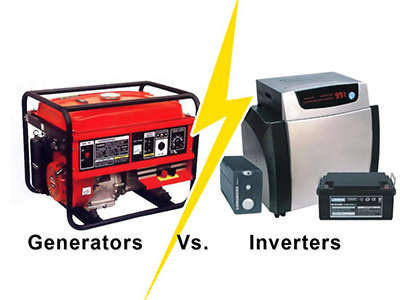
PROS OF USING AN INVERTER IN YOUR RV
- Inverters are more fuel-efficient than generators.
- Inverters are much quieter than generators.
- Inverters produce cleaner power than generators.
- Inverters are easier to maintain than generators.
- Inverters are lighter and more portable than generators.
CONS OF USING AN INVERTER IN YOUR RV
- Inverters are more expensive than generators.
- Inverters require batteries to operate, which can add to the cost.
- Inverters can’t handle heavy loads as well as generators.
- Inverters may not be available in all areas.
PROS OF USING A GENERATOR IN YOUR RV
- Generators are less expensive than inverters.
- Generators don’t require batteries to operate.
- Generators can handle heavy loads.
- Generators are widely available.
- Generators can be used to power tools and other equipment.
CONS OF USING A GENERATOR IN YOUR RV
- Generators are noisy.
- Generators are dirty and produce fumes.
- Generators require more maintenance than inverters.
- Generators are heavier and less portable than inverters.
Inverter or Generator, Which is Best For Home Use ?
Assuming you would like an article discussing the pros and cons of inverters vs generators for home use:
When the power goes out, or you find yourself in a situation where there is no access to public utilities, you will have to rely on a power source that you can bring with you or have at your home. The two main options for portable or at-home power sources are generators and inverters. So, which is better for home use – an inverter or a generator?
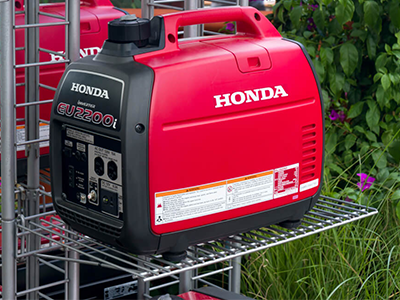
There are a few things to consider when making your decision. One is the initial cost. Inverters are typically more expensive than generators. Another is weight and portability. If you need to be able to take your power source with you, an inverter is going to be the better option. Inverters are also much quieter than generators, so if noise is a concern, an inverter is the better choice.
When it comes to runtime, generators typically have a longer runtime than inverters. However, inverters are more fuel-efficient, so you will end up saving money in the long run by choosing an inverter.
In terms of power, inverters can provide cleaner power than generators. This is important if you are running sensitive equipment or if you are concerned about power surges. However, generators can provide more power than inverters, so if you need a lot of power, a generator is the better choice.
So, which is better for home use – an inverter or a generator? The answer depends on your individual needs. If you need a portable, quiet power source that provides clean power, an inverter is the better choice. If you need a power source that can provide a lot of power for a long time, a generator is the better choice.
Portable
A portable generator is a generator that can be moved easily from one place to another. They are often used to provide power to a specific area during a power outage or natural disaster. Portable generators come in a variety of sizes and can be powered by gasoline, propane, or diesel.
When choosing a portable generator, it is important to consider the wattage you will need. The wattage will determine how much power the generator can provide. For example, a small generator may only be able to power a few lights, while a large generator can power a whole house.
It is also important to consider how you will be using the generator. If you only need it for occasional use, then a small generator may be all you need. However, if you plan to use it regularly or for long periods of time, then a larger generator may be a better choice.
Portable generators are a great way to have power when and where you need it. They can be used for a variety of purposes and come in a variety of sizes. When choosing a portable generator, it is important to consider the wattage you need and how you will be using it.
What Are The Advantages Of A Portable Generator?
A portable generator can come in handy in a variety of situations. If you lose power at home due to a storm, a portable generator can keep your lights on and your refrigerator running. If you’re planning a camping trip, a portable generator can provide you with electricity for your lights and appliances.
And if you’re working on a construction site, a portable generator can provide the power you need to run your tools and equipment.
There are a few things to consider when choosing a portable generator. First, you’ll need to decide how much power you need. Portable generators are available in a variety of sizes, from small units that can power a few appliances to larger units that can power an entire home. Second, you’ll need to decide how you’ll power the generator.
Portable generators can be powered by gasoline, propane, or solar power. And finally, you’ll need to decide how you’ll transport the generator. Some portable generators come with wheels for easy transport, while others are small enough to be carried by hand.
There are many advantages to owning a portable generator. Here are 20 of the most popular reasons:
- Portable generators are ideal for camping and RVing.
- They are also great for tailgating and other outdoor events.
- You can use a portable generator to power your home in case of a power outage.
- Portable generators are much cheaper than standby generators.
- They are much easier to install than standby generators.
- Portable generators can be used to power essential appliances during a power outage.
- You can take your portable generator with you when you travel.
- Portable generators are great for construction sites.
- You can use a portable generator to power your tools and equipment.
- Portable generators are very versatile and can be used for many different purposes.
- They are much quieter than standby generators.
- Portable generators are much more fuel-efficient than standby generators.
- You can easily move a portable generator around.
- They are easy to store.
- Portable generators are environmentally friendly.
- They are low maintenance.
- Portable generators are very reliable.
- They have a long lifespan.
- Portable generators are backed by a warranty.
You can find portable generators in a variety of sizes to suit your needs.
What Are The Disadvantages Of A Portable Generator ?
There are several disadvantages to using a portable generator. First, they are typically less powerful than stationary generators, so they may not be able to power everything you need. Second, they can be difficult to move and set up, so you may need help if you need to use one.
Third, they can be noisy, so you may need to take measures to reduce the noise if you are using one near your home. Finally, they may produce harmful fumes, so you need to be sure to use them in well-ventilated areas.
- Portable generators are less efficient than standby generators.
- They typically have a shorter lifespan.
- They cost more to operate and maintain.
- They’re more likely to be damaged or stolen.
- They’re less reliable than standby generators.
- They produce lower quality power.
- They’re noisier than standby generators.
- They produce harmful emissions.
- They require more frequent refueling.
- They’re not as easy to use as standby generators.
How Does A Portable Generator Work ?
A portable generator converts mechanical energy into electrical energy. The generator typically has a small gasoline engine that drives a alternator. The alternator is a device that converts mechanical energy into electrical energy. The generator produces alternating current (AC) electricity.
The engine of the generator must be regularly maintained in order to prevent breakdowns. The generator should be turned on and run for a few minutes each month to keep the engine in good condition.
Portable generators can be very dangerous if they are not used properly. The generator should always be operated outside, in a well-ventilated area. The exhaust fumes from the generator can be very dangerous and can even cause death if they are inhaled.
When using a portable generator, it is important to connect the generator to the appliances and devices that you want to power using heavy-duty extension cords. The generator should never be connected directly to your home’s wiring.
How To Use A Portable Generator ?
If you need to use a portable generator, there are a few things you should keep in mind. First, make sure that the generator is properly ventilated. You don’t want to risk carbon monoxide poisoning, so it’s important to have good ventilation. Second, be sure to keep the generator dry.
If it gets wet, it could short circuit and cause a fire. Third, only use the generator outdoors. Do not use it indoors or in an enclosed space. Fourth, be sure to read the manufacturer’s instructions carefully before using the generator. By following these simple tips, you can safely use a portable generator.
- Locate a level and firm surface on which to place your generator. Make sure the surface is well-ventilated to avoid carbon monoxide buildup.
- Place the generator as far away from your home or business as possible to avoid any potential damage from carbon monoxide fumes.
- Connect the generator to a power source, such as a circuit breaker box, using heavy-duty extension cords.
- Turn on the generator and allow it to warm up for a few minutes before flipping any switches.
- Begin powering on appliances and devices one at a time, starting with the largest ones first.
Portable Generator For Home Backup
A portable generator is a great addition to any home, especially if you live in an area that is prone to power outages. Portable generators can provide backup power for essential items like your fridge, freezer, and lights, so you can continue to live comfortably even when the power is out.
There are a few things to consider when choosing a portable generator for your home. First, you need to decide how much power you need. This will depend on how many items you want to be able to power during an outage. A small generator may be enough to power a few essentials, while a larger one can power your entire home.
Next, you need to think about where you will store your generator. You need to make sure it is in a safe place where it cannot be stolen or damaged. It is also important to choose a generator that is easy to move, so you can take it with you if you need to evacuate your home.
Finally, you need to decide how you will fuel your generator. Many portable generators run on gasoline, but there are also models that run on propane or diesel. Choose the fuel type that is best for your needs.
Once you have considered all of these factors, you can narrow down your choices and find the perfect portable generator for your home backup needs.
Portable vs Generator For RV
Portable generators are a great option for those who need power while on the go. However, there are some things to consider before purchasing one. Here are a few key differences between portable generators and generators for RVs:
- Portable generators are less expensive and can be used for a variety of purposes.
- Generators for RVs are more expensive but offer more power and features specifically for RVs.
- Portable generators are small and can be easily transported.
- Generators for RVs are larger and must be mounted on the RV.
- Portable generators can be used with any type of RV.
- Generators for RVs must be compatible with the make and model of the RV.
- Portable generators can be used for short periods of time.
- Generators for RVs can be used for long periods of time.
- Portable generators can power a few appliances or devices at a time.
- Generators for RVs can power most, if not all, of the appliances and devices in an RV.
Portable or Generator, Which is Best For Home Use
If you are considering purchasing a portable or generator for home use, there are several things you need to take into account before making your decision. The most important factor is what you will be using the power for. If you only need to power a few small appliances, then a portable generator may be the best option for you. However, if you need to power your entire home in the event of a power outage, then a generator is the better choice.
Another thing to consider is how easy the generator is to use. Portable generators are typically much easier to use than generators, as they do not require installation. However, you will need to refuel a portable generator regularly, whereas a generator will only need to be refueled every few months.
Finally, you need to consider the cost of the portable or generator. Portable generators are typically less expensive than generators, but they may not be able to power your home for as long as a generator. Ultimately, the decision of which is best for home use depends on your specific needs.
Things To Consider When Choosing Between An Inverter or A Portable Generator.
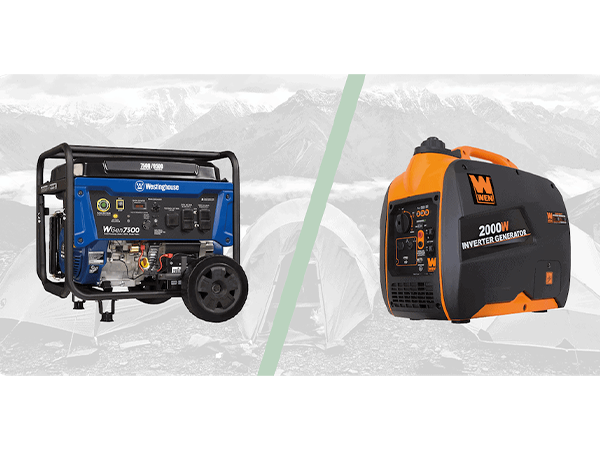
The main difference between the two is that an inverter converts DC power to AC power, while a portable generator creates AC power from a fuel source.
Inverters are typically more expensive than portable generators, but they are also more efficient and generate less noise. Portable generators are more convenient because they can be used anywhere, but they are less efficient and generate more noise.
Another thing to consider is the wattage that you need. Inverters are available in a range of wattages, so you can choose one that meets your needs. Portable generators typically have a higher wattage output, but they may not be able to power all of your devices at once.
Finally, think about how often you’ll need to use the power. If you only need it occasionally, an inverter may be the better option. If you need it frequently, a portable generator may be a better choice.
Fuel type
Inverter generators are powered by gas, and they are very efficient. However, they can be quite expensive.
Portable generators are powered by either gas or diesel, and they are less expensive. However, they are not as efficient as inverter generators.
Noise level
Inverter generators are much quieter than portable generators, making them ideal for use in RV parks, campgrounds, and other places where noise is an issue. If you need a generator for construction sites or other industrial applications, a portable generator is the better choice.
Efficiency
Inverter generators are more efficient than portable generators, meaning they use less fuel and produce less emissions. If you’re looking for a green option, an inverter generator is the way to go.
Cost
Inverter generators are more expensive than portable generators, but they’re also more efficient and quieter. If you’re looking for the best possible option, an inverter generator is the way to go.
FAQ
1.What is the difference between an inverter and a portable generator?
An inverter converts DC power from batteries or solar panels into AC power that can be used to run appliances and electronics. A portable generator is a gas- or diesel-powered engine that turns mechanical energy into electricity.
2. Which is more efficient, an inverter or a portable generator?
Inverters are more efficient than portable generators because they don’t waste energy converting DC to AC power.
3. What are the benefits of using an inverter?
Inverters are more efficient than portable generators and they’re quieter, lighter, and less expensive.
4. What are the drawbacks of using an inverter?
Inverters can’t power everything. They’re not suitable for running high-powered appliances or for powering a home in the event of a power outage.
5. Are there any special considerations when using an inverter?
Inverters can overheat if they’re used for long periods of time or if they’re used to power high-powered appliances. It’s important to read the manufacturer’s instructions carefully to avoid damaging the inverter.
Final Word
There is no clear winner when it comes to inverter vs portable generator. It really depends on your needs and what you are looking for in a generator. If you need a generator for emergency power, then a portable generator is probably your best bet. However, if you are looking for a generator to power your RV or other camping gear, then an inverter generator is probably a better option.

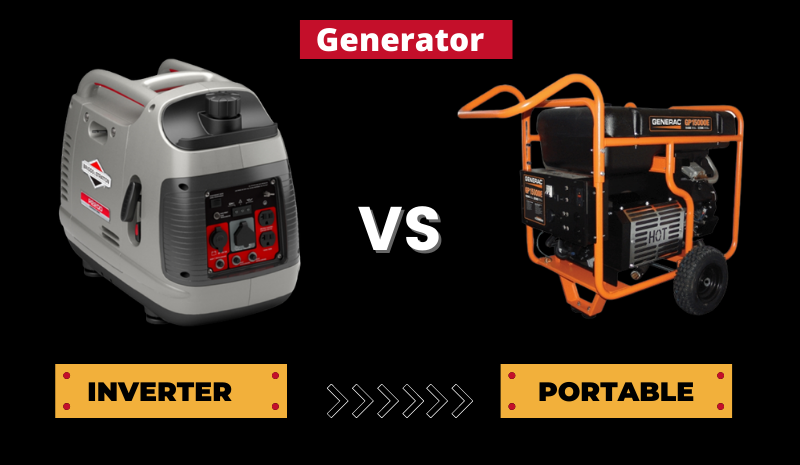
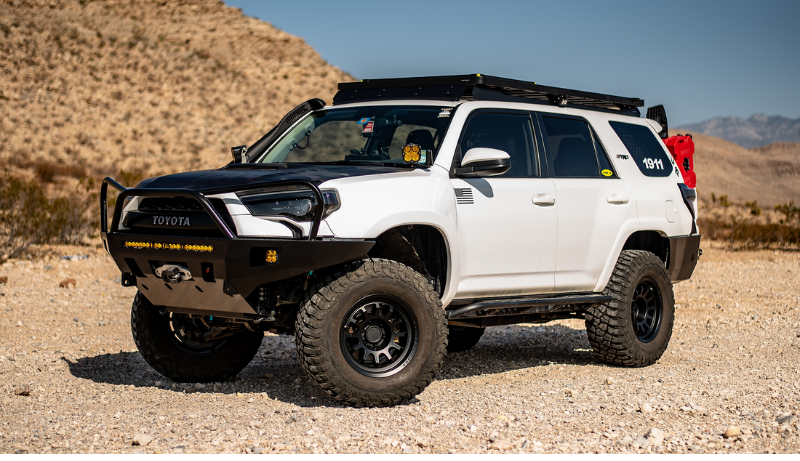
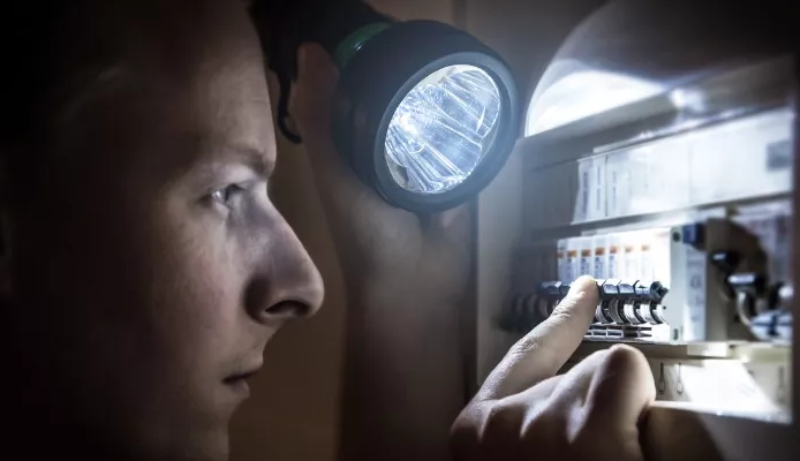
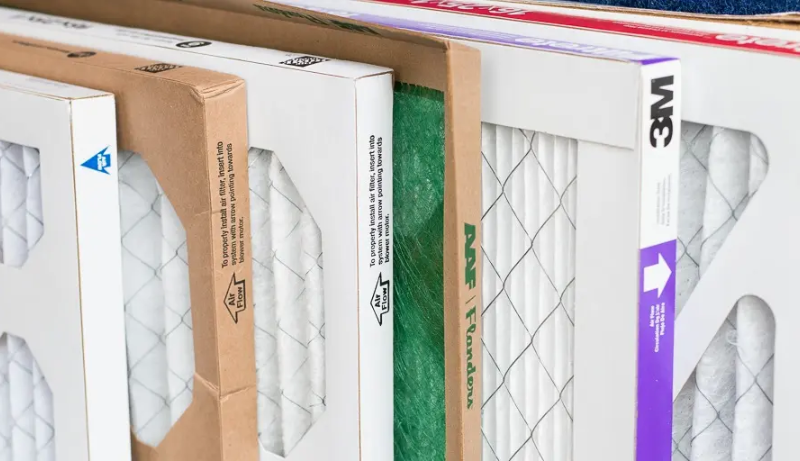
Leave a Reply